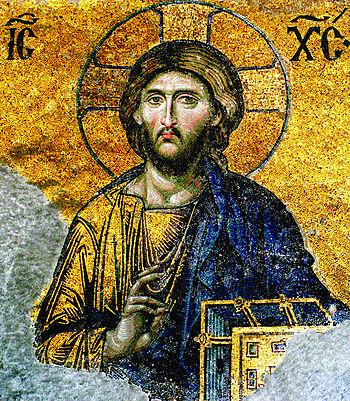
“So when are you becoming Greek?”
Come again?
I was at our neighborhood restaurant, The Village Grill — a fine dining establishment that serves the food you want most on a Friday night. Pizza, Gyros, subs, calzone, chicken kebab over Greek salad — it’s all there and it’s great. A small framed news article on the wall from years ago depicts Ben Affleck and Matt Damon, both originally from Cambridge, in an interview stating this restaurant is their favorite Cambridge “dining establishment’. Not only is the food flavorful and comfortable, we always get to talk to our resident Greek philosopher, Theo, the owner.
Theo knows everyone in the neighborhood.
When Theo found out we were attending the Orthodox church he was full of curiosity. He wanted to know more about it. The questions included why? Which one? The Greek church up the street? Theo was baptized in the church as a baby and though he rarely goes, his wife attends every Sunday. She loves the Church.
“You mean when are we becoming Orthodox? When are we being Chrismated?” I said, a bit puzzled.
“Yeah, you know. Becoming Greek. Ya know it’s hard to become Greek. It’s not easy”
The way much of the west understands the Orthodox church is around ethnicity. There’s Greek Orthodox. There’s Russian Orthodox. There’s Bulgarian Orthodox. There’s the Orthodox Church of America. There’s the Russian Orthodox Church of America. When people ask us about becoming Orthodox, they immediately go to ethnicity. They want to know ‘which orthodox?’. It’s valid.
Faith and ethnicity is not a problem unique to the Orthodox church, indeed it rears it’s ugly, divisive head in Christianity in many other ways and denominations.
But since my faith journey is leading me into the Eastern Orthodox church I am naturally concerned and irritated about this issue in the Orthodox church. Because no – I am not becoming Greek, despite the fact that I love Greeks and sort of wish I was one.
And this is what comes to mind as I discuss “becoming Greek” with our friend and restaurant owner.
As a blog post I don’t have either the time or inclination to dig deeply into the history of these divisions. I do understand some of them to have come from the Greek, Russian, Serbian, Romanian diaspora and their desire to preserve their culture, which was uniquely united with their faith. To be Greek was to be Orthodox. And it’s understandable. Much of the way Orthodoxy spread has been through migration of ethnic groups as opposed to an evangelical mission movement. And the more I read, the more I realize this has been written and talked about for centuries.
As I read and study more I am heartened that I am not the only one troubled by ethnic divisions. I am encouraged by these words from Fr John Peck:
“The truth of the Orthodox faith, as presented on paper, is actually being believed – by those who have no familial or historical connection with the Orthodox. These poor deluded souls (of which I count myself) actually believe what they are reading about the Orthodox faith, and expect the Church to act like, well, the Church. They refuse to accept the Church as a club of any kind, or closed circle kaffeeklatsch….. The passing away of the Orthodox Church as ethnic club is already taking place. It will come to fruition in a short 10 years, 15 years in larger parishes.”
“So what unites the Orthodox Church?” I ask, looking for answers. Worship of God as expressed through the Divine Liturgy. No matter what language or ethnicity, this will be the same. Holy Tradition and belief that the Holy Spirit sustains this Holy Tradition, building up the Church through the ages. These are the hallmarks that unite what ethnicity and culture tend to confuse.
Christianity is a faith that is available for all people in all cultures at all times. I will stand by that until the day I die. My faith journey is moving me into Orthodox faith and tradition, and I am learning more about Christ’s love for the Church and thus the importance of the Church in my faith through this. It is how God is leading me. And though divisions have come and gone through the ages, the Holy Spirit marches on at the whims of no one and nothing.
If the gates of Hell cannot prevail against the building of the Church, ethnic divisions have not a chance.
And so “No – I am not becoming Greek.”


